During the pandemic, health care workers have stepped up in amazing fashion – working grueling hours and stretching beyond their usual duties. We reached out to some of our awesome alums from across the country to share some of their experiences – personal and professional – from the last year.
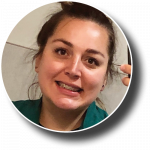 Ibi Merritt ’18
Ibi Merritt ’18
BSN, RN
Sharp Chula Vista Medical Center, Chula Vista, Calif.
I have been impacted by COVID-19 not just in my work life, but also in my personal life. During the start of the pandemic, my dad passed away from complications of COVID-19. He passed away March 24, 2020 – the second person in San Diego County to pass from COVID-19 and the first at the hospital that I work at. My husband, who is also a nurse, was laid off from his job as a surgical nurse since all non-essential procedures were put on hold.
I have seen my fellow nurses get sick and also infect their families with COVID-19; I have taken care of actively sick COVID-19 patients; I have taken care of patients who are no longer COVID positive but still needing so much rehabilitation just to learn to swallow their own food again.
People dying in the ICU with no family around them will forever be one of the hardest things for me, since my dad died in the ICU on a ventilator, and I was the only one in my family allowed to watch from a small window outside the room.
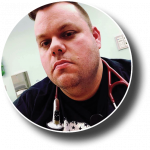 Jezwah Harris ’14
Jezwah Harris ’14
RN, JD, MBA, MSN-C, BSN, NE-BC, CEN
Hospital Nursing Supervisor, San Francisco Bay area, Calif.
When COVID-19 first hit, I was working as the Manager of Emergency and Trauma Services for a hospital in the Seattle area. The Seattle area was ground-zero for COVID-19 in the United States, and I was only a few miles from the huge nursing home outbreak there. In that position, I was the point-of-contact for public health and emergency medical services in addition to running multiple service lines. I was tasked with preparing for something the like of which we had not seen before. We built out new units and physically expanded the Emergency Department, both by retrofitting an adjacent building and erecting emergency management/disaster temporary infrastructure like we would with a natural disaster.
One of my biggest responsibilities was keeping my employees calm and disseminating new information in a thoughtful way … these were emergency nurses who are prepared to receive anything that walks through the door breaking down with worry for themselves, each other, and their families in the midst of often conflicting information.
The nurses that I supervise are the heroes. They are providing the patient care during a pandemic. I just help support them.
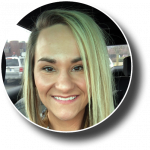 Trista Lewis ’18
Trista Lewis ’18
RN, BSN
High Risk Labor and Delivery, Indianapolis, Ind.
I was five-months pregnant when the news really spread and people were told to quarantine, and I was told to not have any patients that were COVID positive.
Early on, we had patients who came in to deliver, and only then did they find out they were COVID positive. Most were asymptomatic, and didn’t know they had the virus until they came in to deliver.
The pediatricians recommended the baby be removed from the room to limit exposure. And the mother and baby were kept separate until they went home. And those positive mothers didn’t get any visitors. That’s hard for a nurse to explain to a new mother that she cannot hold, touch or feed her baby. The policy has changed now, and the benefits of skin-to-skin contact and breastfeeding outweigh the risk of exposure.
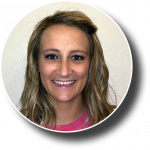 K.C. Simmons ’15
K.C. Simmons ’15
BSN
Pediatric Surgery and
Trauma Nurse, Ft. Worth, Texas
COVID-19 has changed the way our hospital is run and the ways of being a nurse. It has been overwhelming at times because we are balancing multiple admissions between surgeries, traumas, renal and GI patients. It has been causing some burnout with a lot of our nurses.
COVID-19 has also changed the way that nursing used to be in my eyes. Wearing masks and eyewear at all times during work has been difficult. Pediatric patients thrive on a nurse’s smile and friendly face, and unfortunately they don’t get to see that when we enter their room. We now appear scary to some of the younger patients, which makes it difficult to gain their trust at times. I believe policies will be changed forever at our hospital, and things will definitely be looked at differently for a long time.
I miss the days when I could spend quality time with a patient without even the thought of COVID-19. I miss not having to wear a mask all day. I miss getting to watch patients walk around the hallways without wearing a mask and smiling with pride as they make strides towards recovery and discharge. I miss being able to have family members visit my patients because it brings them joy. I miss getting a hug from my patients as they discharge home.
I miss not being scared. I miss the way things used to be.
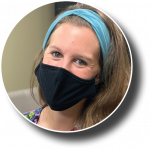 Brooke Bernhardt ’16
Brooke Bernhardt ’16
RN, BSN, CCRN
Cardiac Surgery Patient Care Coordinator, Nashville, Tenn.
In the cardiac surgery world, our care never stops. While the majority of the hospital has been focused on COVID-19, we’ve worked hard to re-invent our new normal to keep things going. Patients who need open-heart surgery often can’t wait. Post-op care has taken on a whole new look as we grasp for resources that have become more limited. We’ve persevered, adapted, and will continue to hope for brighter days ahead. For now, we will keep doing whatever it takes to keep our patients safe and give them the care they need.
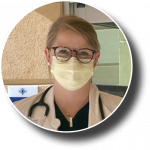 Angel Clark ’17
Angel Clark ’17
BSN, RN
Clinical Instructor, Education Coordinator, Cedar City, Utah/ Mesquite, Nev.
This has been a stressful time for all of us. I understand the need to remain COVID-19 compliant and decrease the risk of transmission, but I also know that before the pandemic, there was an ever-present nursing shortage. We need nurses now, more than ever. The cycle is getting worse. Nursing shortage leads to burnout. Burnout leads to nurses leaving. Nurses leaving increases the shortage … burnout gets worse. Nurses are leaving at record rates … and hospitals aren’t allowing our student nurses in, so we can’t fill the shortage. We’re struggling to get new nurses trained, certified and onto hospital floors.
While my “front line” doesn’t look like everyone else’s, I’m trying my best to keep new nurses coming into the career field and prevent a catastrophic nursing shortage from happening in the near future.
 Adrian Akasaki ’14
Adrian Akasaki ’14
BSN, WCC
VA, Honolulu
I run my own wound clinic, where the majority of my patients are homeless, and they all ride the bus. It is very risky. It can be scary, but I know if I did not see these patients, they run the risk of losing limbs or getting serious infections; however taking proper precautions lessens the risk.
I will say I am lucky to be a nurse and have an essential job. I feel like people are just now realizing the risk we take as nurses every day. I know that we will eventually make it through this, and I can’t really complain too much because I do live in paradise.
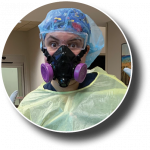 Abigail Lee ’15
Abigail Lee ’15
RN, BSN
Obstetrics Emergency Department, Orlando, Fla.
When the pandemic first started in March, many people were afraid to go into emergency departments and our census the first few months was low, as we were not seeing very many cases in Orlando yet. As more places opened up, and cases in the area rose, we also saw an increase in emergency room visits for non-emergent care as people became less afraid of going back to the hospital.
So often before this year, women could have more support people in their room. Now women are having to choose only one support person to stay with them.… It has turned what used to be an exciting part of growing your family into something that can feel lonely and difficult. As a nurse, we are trying to offer as much support as we can, but the support of someone you just met is not the same as the support of a loved one.
Staffing issues can also contribute to the amount of support we are able to give our patients, and these issues have been widespread throughout the pandemic at every level of our hospital.
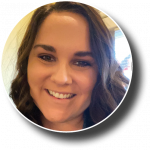 Kelly Scannell ’15
Kelly Scannell ’15
RN, BSN
Resource Pool, Council Bluffs, Iowa
It has been a tiring year, as well as a rewarding year. I have seen our nurses step up to take more responsibilities and band together as a team to give superior care to every patient. With flu season quickly approaching, we are getting anxious with what will come and how we will adapt. As a health care worker, we know we will make it through this together. We have been trained and taught to withstand difficult situations and trying times. That’s just what we do.
 Kimberly Chilton ’17
Kimberly Chilton ’17
RSN, RN
Home Health Nurse Cameron, Mo.
Health care from a home health perspective has changed significantly and is evolving daily. The best thing we can be is flexible nurses who are diligent in disinfecting everything from one home to the next. The hospital has put restrictions on our personal lives as well to protect our patients as much as possible. This includes limiting our travel and wearing masks even when we’re off the clock in public and no mask is required by law.
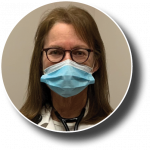 Linda Gerhardt ’88
Linda Gerhardt ’88
FNP-BC
St. Joseph, Mo.
The SARS-CoV-2 virus, or COVID-19, and resulting pandemic, came at most of us like a tidal wave. For health care workers it was, and continues to be, more like a tsunami. What had been a fairly predictable profession for me in the past, has become, and continues to be, more like a bad dream. Every aspect of the working day has changed, from starting the day with group prayers to removing all reading material out of a waiting room. The staff has had to rethink almost every step of care that is provided to our clients. Safety for all involved, both staff and those we care for, has been, and continues to be, of the utmost priority.
Most of all, I have seen a change in the human spirit. Some have adapted and shown great resilience during the pandemic, and for this I am grateful. Others seem to be worn to a frazzle. Constant use of masks and face shields, hand washing and sanitizing, examination room and equipment cleaning, frequent updates to current practice standards can be daunting. I know that this will pass, and I hope that we are all stronger, kinder human beings because of it.
To these Griffs who shared these stories, and all those in health care, thank you.
